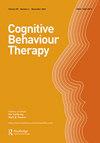Results of a qualitative study of patient, carer and clinician views on the experience of caring for individuals with psychosis in Pakistan
IF 4.3
2区 心理学
Q1 PSYCHOLOGY, CLINICAL
引用次数: 1
Abstract
Abstract Cultural relevance is a core element of effective psychological interventions like cognitive behaviour therapy (CBT) or family intervention (FI), which can be considered Eurocentric. There have been few studies that have examined explanatory models of mental illness and its management in Pakistan to date. This study elicited patient- and carer-related health beliefs on psychosis including attributions to illness, and help-seeking behaviours to inform development of culturally sensitive treatment and improve outcomes in a unit in Lahore (Pakistan). The study group completed 45 semi-structured qualitative interviews at a mental health rehabilitation centre in Lahore. Data were analysed thematically using emerging themes and content analysis. Participants’ explanatory models for psychosis included religion or faith-driven beliefs, like previous wrong-doing and supernatural ideas such as black magic. Social factors that impacted families included high expectations, social stigma, and discriminations. Families first sought help from faith leaders and then medical or psychological sources of care. Participants had generally positive attitudes about their experience of psychological interventions. Key learning aims (1) The need to consider cultural influences to ensure relevance of interventions like cognitive behaviour therapy (CBT) or family interventions (FI) in different countries. (2) The need for cultural adaptation of interventions like CBT and FI in different countries to make them accessible and acceptable. (3) When adapting therapy to a particular culture or country, recognizing the importance of engaging the local cultural population in the adaptation process.巴基斯坦精神病患者、护理人员和临床医生对护理经验的定性研究结果
文化关联是有效的心理干预的核心要素,如认知行为治疗(CBT)或家庭干预(FI),可以被认为是欧洲中心。迄今为止,很少有研究检验了巴基斯坦精神疾病的解释模型及其管理。本研究在拉合尔(巴基斯坦)的一个单位中引出了患者和职业相关的精神疾病健康观念,包括疾病的归因和寻求帮助的行为,以告知文化敏感治疗的发展和改善结果。研究小组在拉合尔的一家精神健康康复中心完成了45次半结构化定性访谈。使用新兴主题和内容分析对数据进行了主题分析。参与者对精神病的解释模型包括宗教或信仰驱动的信仰,比如以前的错误行为和超自然的想法,比如黑魔法。影响家庭的社会因素包括高期望、社会污名和歧视。家庭首先向宗教领袖寻求帮助,然后是医疗或心理护理。参与者对他们的心理干预经历普遍持积极态度。主要学习目标(1)需要考虑文化影响,以确保不同国家的认知行为疗法(CBT)或家庭干预(FI)等干预措施的相关性。(2)需要在不同国家对CBT和FI等干预措施进行文化适应,使其可获得和可接受。(3)在使治疗适应特定文化或国家时,认识到让当地文化人群参与适应过程的重要性。
本文章由计算机程序翻译,如有差异,请以英文原文为准。
求助全文
约1分钟内获得全文
求助全文
来源期刊

Cognitive Behaviour Therapy
PSYCHOLOGY, CLINICAL-
CiteScore
9.20
自引率
0.00%
发文量
25
期刊介绍:
Cognitive Behaviour Therapy is a peer reviewed, multidisciplinary journal devoted to the application of behavioural and cognitive sciences to clinical psychology and psychotherapy. The journal publishes state-of-the-art scientific articles within: - clinical and health psychology - psychopathology - behavioural medicine - assessment - treatment - theoretical issues pertinent to behavioural, cognitive and combined cognitive behavioural therapies With the number of high quality contributions increasing, the journal has been able to maintain a rapid publication schedule, providing readers with the latest research in the field.
 求助内容:
求助内容: 应助结果提醒方式:
应助结果提醒方式:


